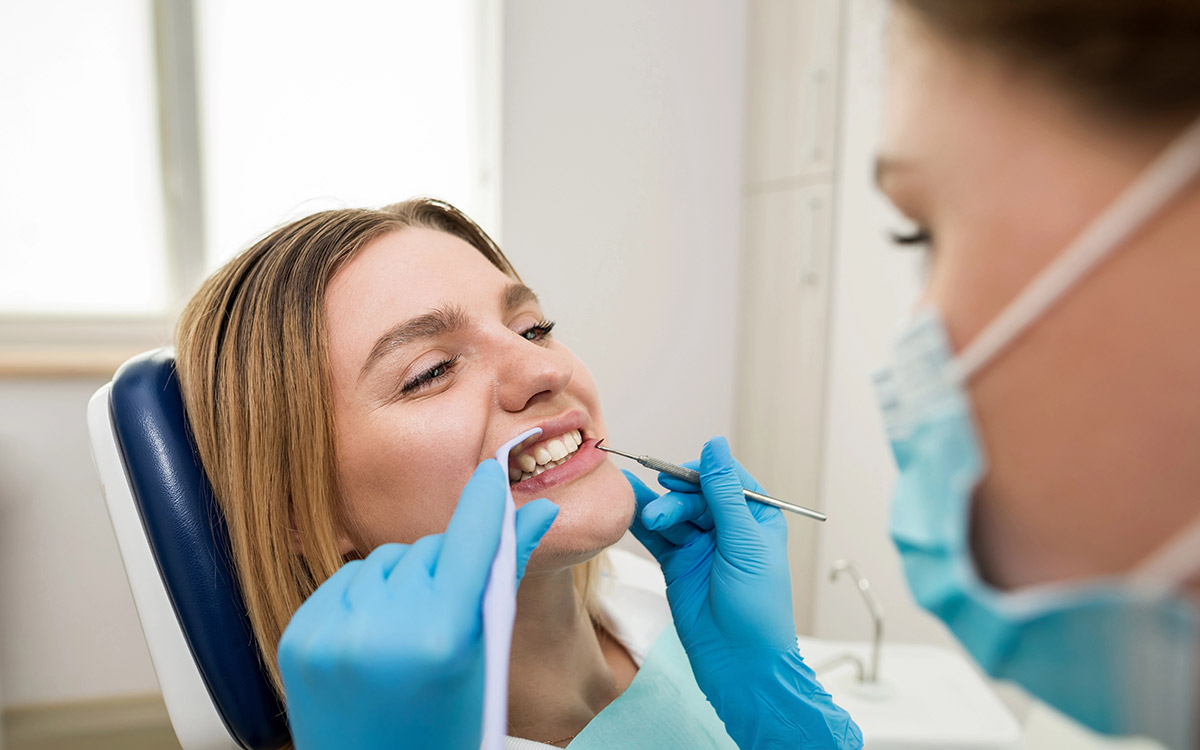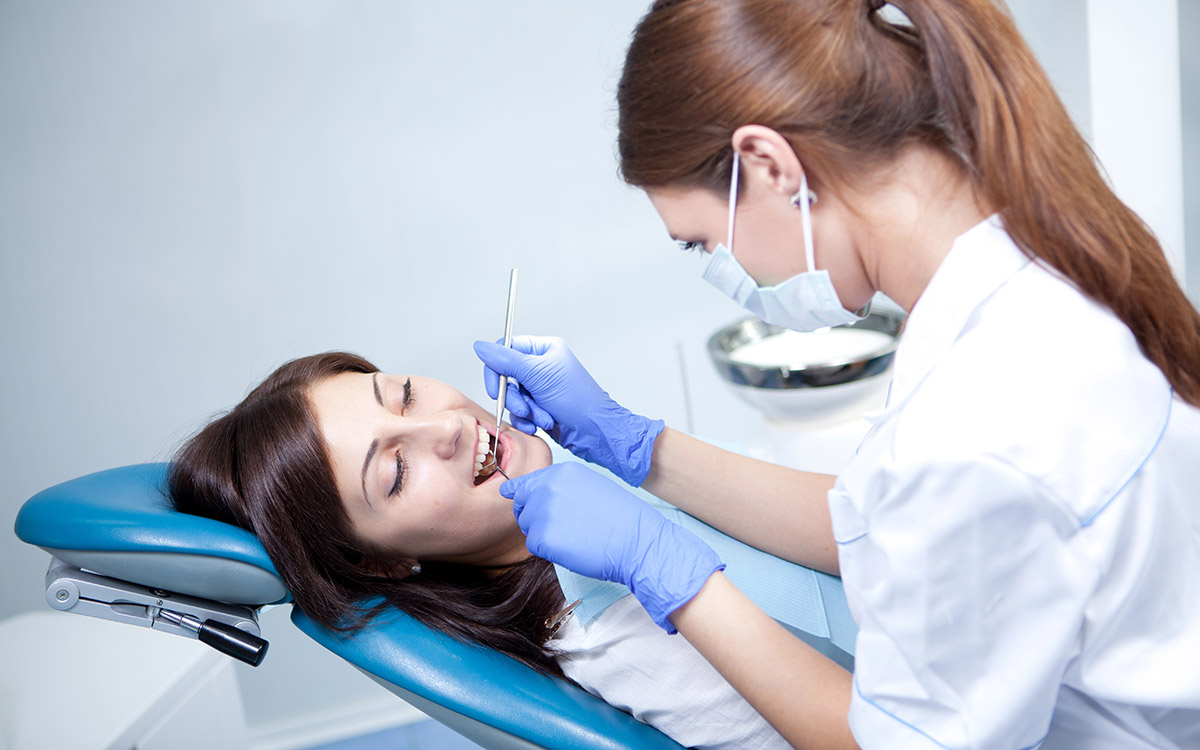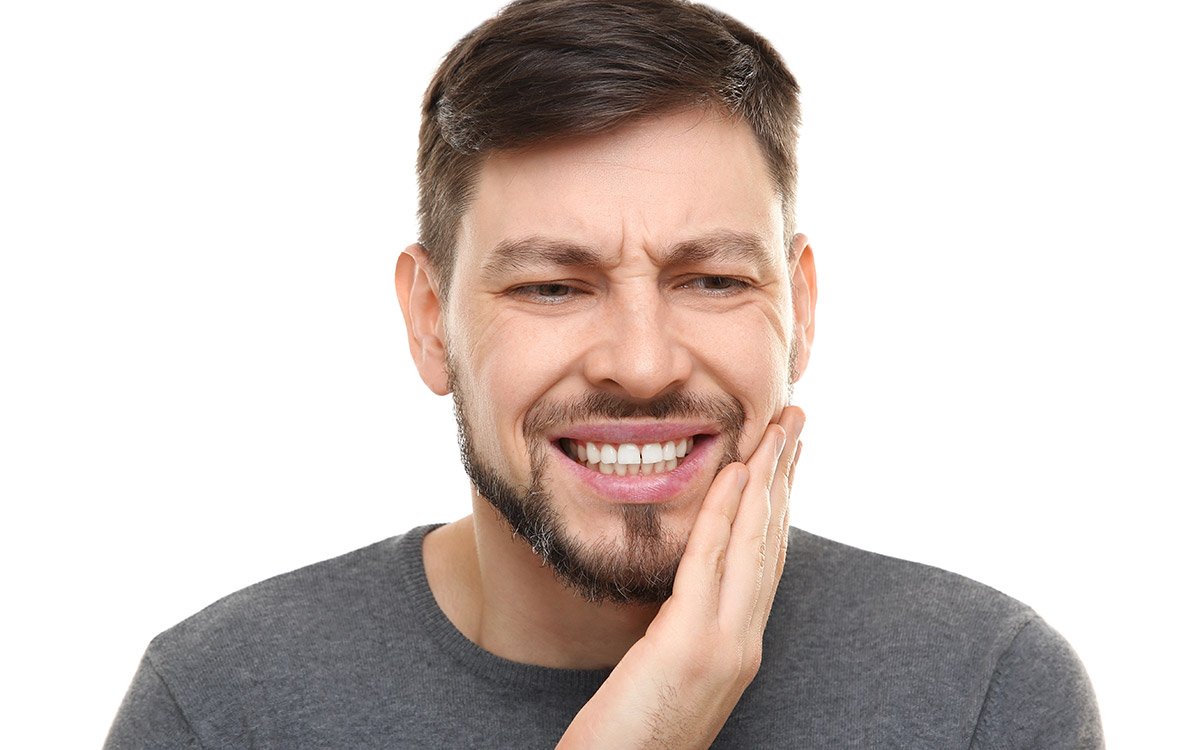Burning mouth syndrome (BMS) is a condition commonly associated with having a burning sensation in your mouth. Pain starts from your mouth’s palate and tongue’s tip, spreading to the front of the mouth and inner lip. In most cases, the sensation subsides only a few minutes after it starts and does not occur very often.
However, in chronic cases of BMS, the condition is an everyday problem, making it very uncomfortable to go about your day.
If you think you might be developing BMS, you should schedule an appointment with your orthodontist soon. Your doctor will diagnose and rule out any conditions causing the burning sensation.
What Are the Symptoms of Burning Mouth Syndrome?
There are several symptoms that you develop when you have BMS. It is worth noting that not every symptom listed causes the condition. That is why you should always consult your dentist to identify the cause and the symptoms that affect you properly.
Some of the common symptoms of BMS include:
- The main symptom of burning mouth syndrome is having a burning or scalding sensation on your tongue, lips, gum, palate, throat, or whole mouth. The sensation is often accompanied by pain and discomfort.
- In addition, you might also experience a stinging, tingling, or numbing feeling in your mouth.
- Some patients also have a dry mouth and increased thirst.
- In other cases, you might also experience a change in taste or experiencing a metallic or bitter taste, or a loss of taste altogether.
Causes of Burning Mouth Syndrome
There is no specific cause of BMS. However, two types of conditions are diagnosed depending on what causes them. These conditions are:
Primary Burning Mouth Syndrome
Primary BMS means that your condition is not caused by any underlying medical condition. If you are suffering from primary BMS, then the condition might be a symptom of another illness from which you might be suffering.
Making an appointment with your oral doctor can help determine if you have primary BMS and offer professional advice on the way forward.
Secondary Burning Mouth Syndrome
On the other hand, secondary BMS means a particular medical condition might be causing your BMS. By treating or managing the medical problem, there is a higher likelihood of curing your secondary BMS.
The following are some of the common causes of secondary BMS include:
Dry Mouth
Dry mouth or xerostomia happens when your mouth does not have adequate saliva, leading to a sticky feeling and discomfort. Saliva naturally cleans your mouth and neutralizes high acid levels.
Dry mouth is often caused by changes in hormone levels, salivary gland conditions, or medication. A dry mouth can lead to higher acid levels, soreness and contribute to a stinging and burning sensation in your mouth.
Hormonal Changes
Hormones play a massive role in regulating how your body and enzymes work. Changes in hormone levels can contribute to dry mouth, acid reflux, or other conditions that cause secondary BMS.
Furthermore, menopause has also been associated with burning mouth syndrome. Studies show that women over the age of 50 years often experience BMS due to the change in hormone levels in the body.
Acid Reflux
Thirdly, acid reflux can worsen BMS symptoms. Reflux pushes acidic content from your stomach to your mouth, causing irritation and increasing your mouth sensitivity.
Medication Side Effects
In addition, certain medications and treatments can harm your oral health. Taking some medication can lead to adverse side effects such as tingling of the mouth or tongue and dry mouth.
Furthermore, other medicines can also cause soreness in your mouth and a metallic or bitter taste sensation. Always talk to your physician about the possible side effects of the prescription medication you will take.
Allergies
Allergic reactions also cause BMS. The burning sensation you feel might result from hypersensitivity to particular foods or substances. In addition, allergic reactions also cause dry mouth and acid reflux.
Nutrition Deficiency
A lack of enough vitamins and minerals can also contribute to BMS. If you do not have enough minerals like zinc, iron, and vitamin B, you might notice a tingling or burning sensation on your tongue and mouth.
Oral Conditions
Some oral diseases also cause a burning mouth feeling. If you have candidiasis, thrush, or other fungal infections, you might experience pain, inflammation, and a dry mouth.
Likewise, some pre-existing oral conditions like having a geographic tongue make you more prone to inflammation, which can cause pain and discomfort.
Oral Habits
Certain oral habits like grinding your teeth, biting your tongue, tongue thrusting, or brushing your teeth too hard can be a problem. Any cuts or bruising can make your nerves sensitive, leading to a burning feeling in your mouth or tongue.
Mouth Irritation
Lastly, mouth irritation can also be the culprit. Spicy food, acidic drinks, tobacco, or alcoholic substances can irritate your gums, tongue, and mouth, leading to that burning feeling.
What Is the Treatment for Burning Mouth Syndrome?
Before starting any treatment, your dentist must adequately diagnose the cause of your BMS. You might need to undergo a few tests, including blood tests, salivary flow tests, allergy tests, and oral swabs.
The diagnosis will help your doctor prepare a comprehensive treatment routine that will help manage your burning mouth syndrome. Treatment for BMS includes:
Dry mouth treatment
If you have dry mouth, your dentist might recommend medication and food that will help increase your saliva production.
Nutritional supplements
In addition, you might also need to start taking vitamin and mineral supplements to help bring back those low iron and zinc levels.
Acid reflux treatment
If your BMS results from acid reflux, your orthodontist might recommend taking medication that will help neutralize your stomach acid content, relieving you of some soreness and pain.
Mouth infection treatment
Likewise, your doctor can also treat mouth infections to help relieve the tingling and burning tongue feeling.
Prescription change
Lastly, if your BMS is caused by medication, your doctor can prescribe other drugs that do not have side effects like dry mouth.
There are multiple ways to manage and cure burning mouth syndrome. Schedule an appointment with your dentist for a proper check or if you have any questions about your oral health.







